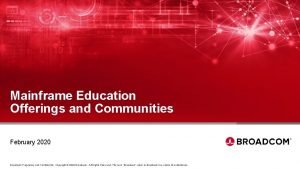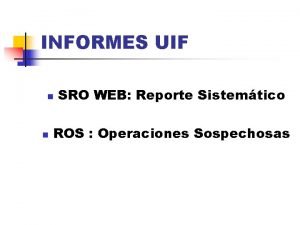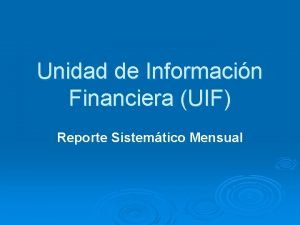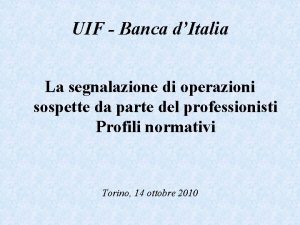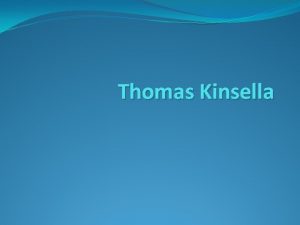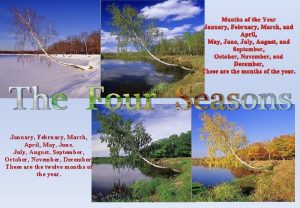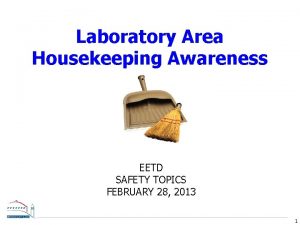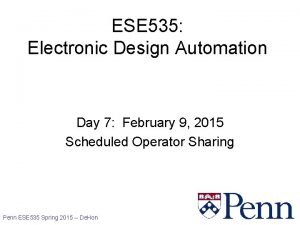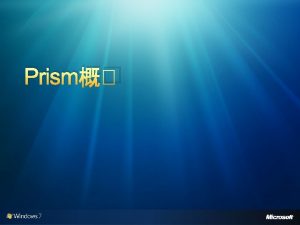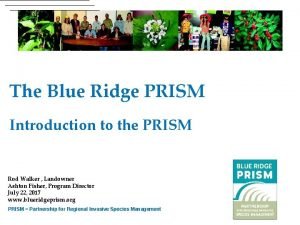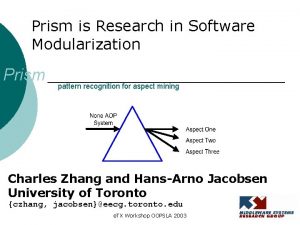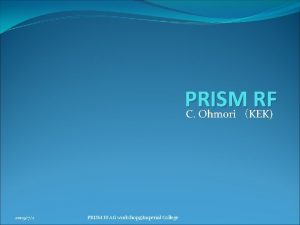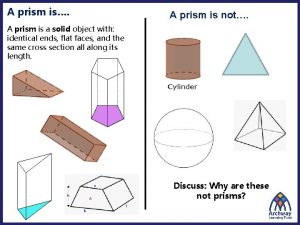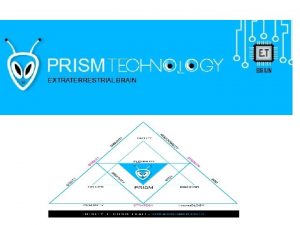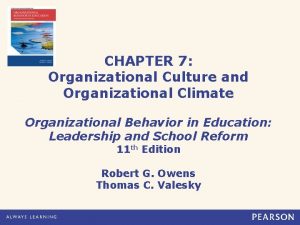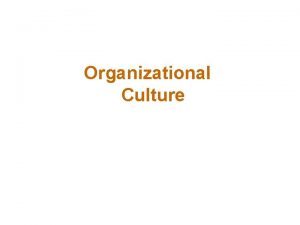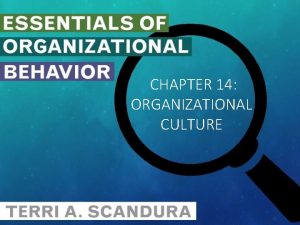PRISM Organizational Overview PRISM UIF Review February 26

PRISM Organizational Overview PRISM UIF Review February 26, 2001 Karen Schmitt, College of Ocean & Fishery Sciences

Why UIF for PRISM Organization? • Significant Organizational Issues for Interdisciplinary Environmental Science at UW – Highly Interdepartmental – Six Colleges & Deans • Decentralized Resources – Centers, Libraries, Office of Research (FHL) • Regional Need for UW Contributions – ESA – Water Resources – Urban Growth

PRISM Approach • Distributed Organization – No Permanent Faculty or Staff Positions – Not a Center or Department – Opportunistically Leverage Existing UW Resources • Self-Directed Work Teams (Working Groups) – Highly Interdepartmental, Coordinate via Steering Committee – Involve Participants from Outside UW • Use Technology to Facilitate: – – Collaboration & Education Model Integration Data Base Integration Information Distribution & Outreach • Engage in Regional Issues Where/When Appropriate

PRISM Organization

Puget Sound Regional Synthesis Organizational Model

PRISM UIF Funds Expenditures

PRISM UIF Funds Expenditures

PRISM UIF Expenditures Graph 89% of UIF expenditures support PRISM faculty, staff and students

PRISM UIF Expenditures in Salary, Benefits, Tuition

PRISM UIF Expenditures by Area

PRISM UIF Expenditures by Area

PRISM UIF Expenditures by Area $947, 759 57% $133, 782 8% Program Administration $152, 058 9% $417, 086 25% $23, 229 1% (highly leveraged)

PRISM Leveraged Grant Funds

PRISM UIF Review Schedule 08: 00 – 09: 00 AM 09: 00 – 09: 30 – 10: 00 – 10: 30 – 11: 00 – 11: 30 – 12: 00 • PRISM Overview Integrated Biophysical Modeling and Data Synthesis Coupled Atmosphere and Hydrology Models Marine Modeling and Measurements Urban Drivers of Landuse and Landcover Change Water Resource Allocation and Quality Divisional Dean of Sciences, College of Arts & Sciences Lunch 1: 00 – 1: 30 PM 1: 30 – 2: 00 – 2: 30 – 3: 00 – 3: 30 4: 00 – 4: 30 – 5: 00 Near. PRISM: The Seeding of a Working Group on the Nearshore Contemporary and Historical Land Cover & Geomorphology The Learning Center & Applications in PRISM Learning Platforms at Sea: ORCA to the R/V Thompson Complex Environmental Processes in Virtual Environments Dean of Ocean & Fishery Sciences Final Meeting, Review Committee with P. I. What you will see by area

PRISM Integrated Modeling: Research, Education & Partnerships • Integrated Biophysical Modeling and Data Synthesis • Coupled Atmosphere and Hydrology Models • • Marine Modeling and Measurements • • Water Resource Allocation and Quality • Contemporary and Historical Land Cover & Geomorphology • Learning Platforms at Sea: ORCA to the R/V Thompson Urban Drivers of Landuse and Landcover Change Near. PRISM: The Seeding of a Working Group on the Nearshore

The Learning Center

Complex Environmental Processes in Virtual Environments
- Slides: 17
